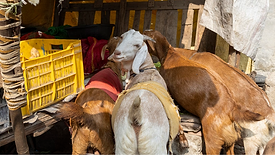Home » Keywords: » Asia
Items Tagged with 'Asia'
ARTICLES
Global Food Safety Culture: Asia
Food safety culture in Asia spans culturally diverse regions, but three broad types of leadership are identified in two types of companies
June 10, 2022
Never miss the latest news and trends driving the food safety industry
eNewsletter | Website | eMagazine
JOIN TODAY!Copyright ©2025. All Rights Reserved BNP Media.
Design, CMS, Hosting & Web Development :: ePublishing









